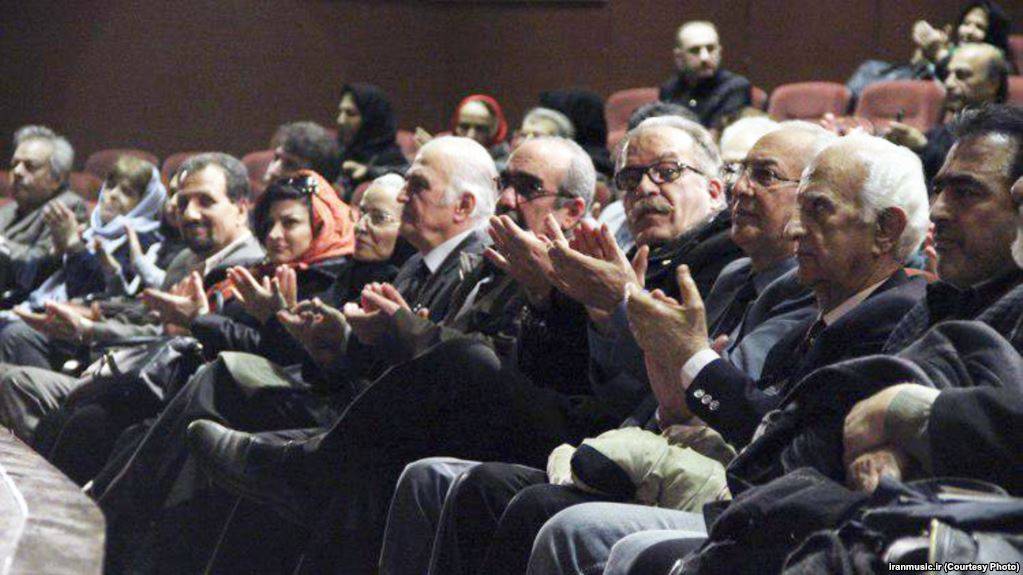Musicians in Iran are hoping that their President will live up to his 2017 campaign promises, and one in particular: when the president told ISNA he “supports the music industry…[and that] his re-election proved ‘that everyone [in Iran] is at peace with music.’” Unfortunately, many believe these to be empty words, as he is not currently helping Iranian artists and musicians against the censorship of their music and concerts, which has led them to ask for his help directly.
Many saw Rouhani’s victory as a turning point in Iranian policy, possibly even a rebellion to very conservative factors in the country—including the rejection of music. When he was elected, crowds of Iranians of all ages began to chant Rouhani’s name in celebration; they were expressing their excitement at the prospect of a more liberal and reformed country, as they could now take part in new everyday activities such as listening to music. The conservative belief is that music is a complete distraction of the people’s minds, as it can “‘lead people away from the path of God.” This meant that before Rouhani was elected, music was heavily censored, and if you were caught singing you could be charged with crimes such as “blasphemy” and “advertising against the system.”
In 2017, Rouhani was re-elected when he again won the election in an absolute landslide. His main competitor that year was a conservative Ebrahim Raisi, who wanted to restore the non-progressive values of the nation, such as censorship; Rouhani wanted a more open-minded and liberal Iran. In the end, Rouhani promised to re-engage conversations with the West and allow more freedoms including lessening censorship. These views would lead to his successful re-election.
Iranian Artists Ask President Rouhani For Help
Musicians are not happy with their country’s stance on music, including Shahram Nazeri and his son Hafez Nazeri, who have seen their music concerts cancelled at the last second. This is a common occurrence which stems from religious conservatives applying pressure on venues by saying that music is “spreading depravity.” This, in turn, moves organizers to shut down concerts rather than contend with powerful religious officials.
President Rouhani has said on multiple occasions that he supports the music industry, which is consistent with a study run by Freemuse in 2016, although some criticize Rouhani’s Iran for causing the most damage to artistic freedom through censorship. There remains an ongoing struggle between Rouhani’s administration and The Supreme Leader Ali Khamenei and his religious organizations—they withdraw performance permissions via the Ministry of Culture. Khamenei has even had artists sentenced, claiming their music is “propaganda against the state” and “insulting the sacred.”

The Center For Human Rights in Iran has commented on the situation, stating that Iranian conservatives “justified their attacks on musicians by quoting vague statements and decrees by senior religious leaders. Iran’s supreme leader, Ali Khamenei, has himself often warned about the alleged dangers of music, saying it will ‘lead people away from the path of God’.”
The aforementioned Nazeris are the most recent musicians to have their concerts cancelled in Iran. Their show was scheduled to take place in Quchan, Iran on Friday, August 6th, however it was cancelled on the 28th of July. The only explanation and reason given for the cancellation was because “The venue – a sports venue for local workers – disrespects the sentiments of […] the people of Quchan.”
This cancellation, and many others like it, led the House of Music to write a letter to the President for help. One section of the letter states: “Preventing licensed musical performances is clearly breaking the law and an act of sabotage, and the perpetrators must be prosecuted.” Note that this letter comes after a petition was signed by over 500 musicians and producers to launch “a special fund to compensate the losses borne by musicians after concerts are cancelled.”






